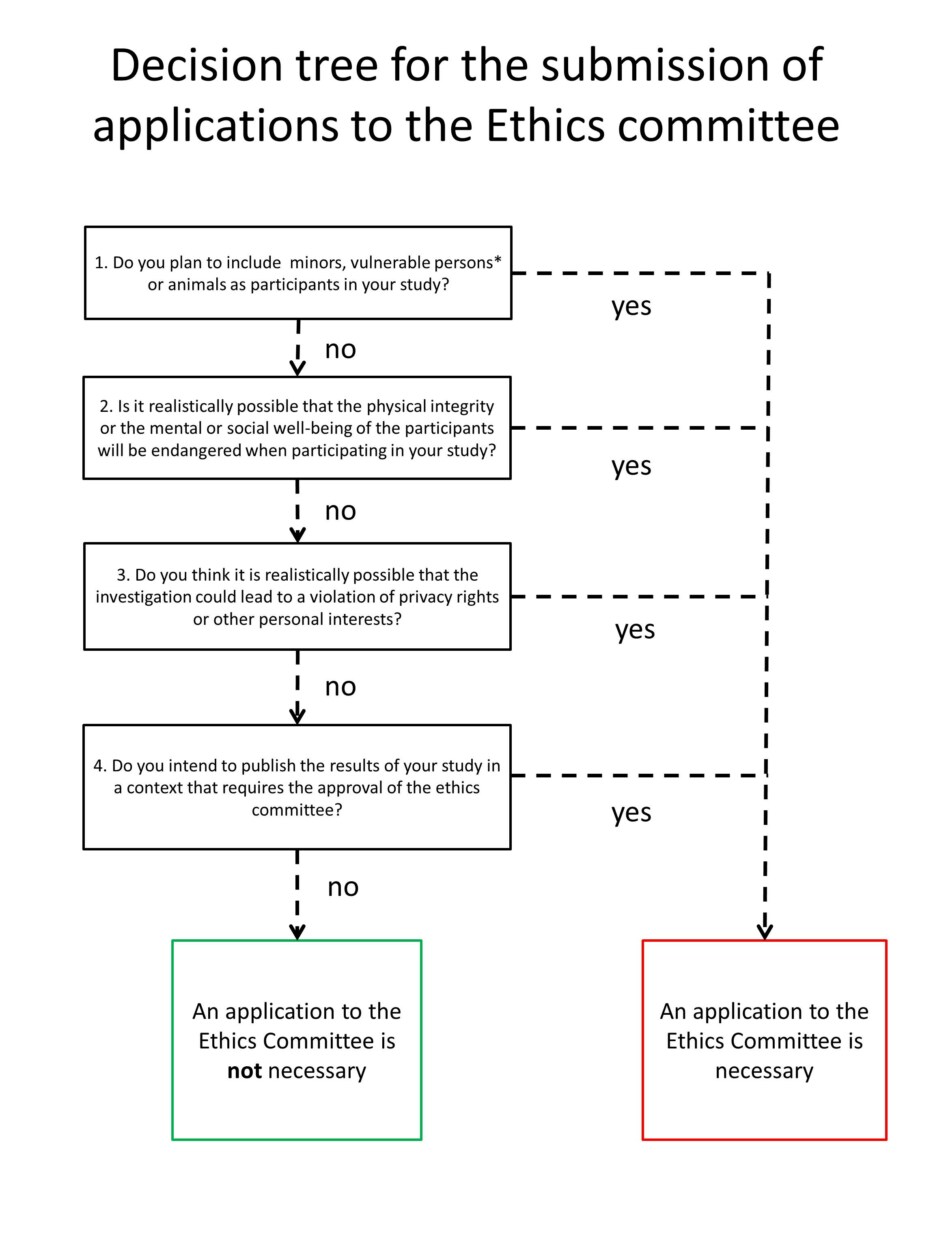At what time should the submission for review by the ethics commission be made?
Submission for review must be made BEFORE the empirical research begins.
The empirical study may only be started once the ethics commission has given a positive vote.
Who is to make the submission for evaluation by the ethics commission?
The project leader must make the submission.
In the case of student qualification works or independent research works of students, the submission is made by the student after consultation with the supervisor of the research work. The supervisor who is also responsible for the project management (project leader) must be named in the submission.
The project leader is responsible for checking the quality and reliability of the data, i.e. the supervisor in the case of student work. It is the student’s responsibility to ensure data protection. The supervisor is ultimately responsible.
How is the submission for review by the ethics commission to be carried out?
Submissions must be made exclusively via the online submission system. Illustrated instructions are available for carrying out the submission.
All forms required for the submission are available for download. Only the forms provided are to be used.
Different forms are required depending on the research design and the group of study participants. Instructions for the selection of the forms can be found on the following slides.
To get access to the online submission system, the instructions for submission and to download the form sheets, please write an email to: research@sfu.ac.at .
How long does a review by the ethics committee take?
Submitters can expect a feedback from the Ethics Commission within two weeks. Submissions will not be processed during the semester break. In urgent cases, please contact the Ethics Committee directly.
Under what conditions is an assessment of the ethics commission required?
Note to item 1: “Vulnerable” refers to persons who, at the time of the investigation, are in critical life situations and/or under increased stress, are undergoing psychotherapeutic, psychological or medical treatment and/or are totally or partially unable to protect and communicate their personal interests (e.g. persons under guardianship).
Note to item 2: Endangering includes, for example, mental or physical side effects of therapeutic interventions, or possible emotional stress or re-traumatization caused by participating in your study
Note to item 3: This could be the case, for example, through the processing, transmission of personal data and/or use of third-party software.
Note to item 4: If no decision has been made in regards to the publication of the study, but publication is a likely possibility, we recommend submitting an application
Note to item 5: If changes occur in a study that has not been reviewed by the Ethics Committee so far, please contact the Ethics Committee to clarify whether a submission is necessary
if the study participants belong to a particularly vulnerable group of people, these are groups of people who are vulnerable because of their physical, mental or psychological constitution or because of their special social situation:
- Children and adolescents
- People of all ages suffering from a somatic illness and/or a physical disability and/or mental disorder
- People with cognitive deficits or dementia
- Persons with legal adult representatives
- People in emergency or extreme situations, e.g. people currently in situations of flight
- Persons to whom custodial or legal measures restricting their freedom are applied
- Pregnant women
- Persons for whom the voluntary character of participation is questionable due to a relationship of dependence (e.g. students of the Sigmund Freud University
